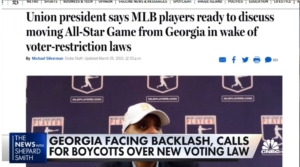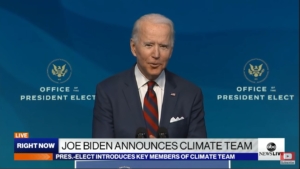Internet Abdication, The Global Super Court, and Pentagon Politics
Here’s What You Need To Know
For years, the U.S. government has helped maintain the internet through a Department of Commerce contract with a private non-profit called the Internet Corporation for Assigned Names and Numbers (ICANN). At midnight on September 30th, however, the Obama administration will cede U.S. protection of the internet.
Despite their claims that the void will not be filled by the United Nations, it seems that is exactly what will happen.
- How Did We Get Here? Two years ago, the Department of Commerce began the process of ceding oversight of ICANN to a “multi-stakeholder” group instead of a single government. While the plan for the privatization of ICANN dates back to 1997, the Obama administration made it a telecommunications policy priority in a way the previous administrations never did. Congressional Republicans have tried to defund the plan, but while this legislation is stuck on Capitol Hill, the Obama administration has moved forward with the October 1st transfer.
- Thanks, Obama, But Why? As Obama Commerce Official Lawrence Strickling explained, “For the last 18 years, the United States has been working with the global Internet multi-stakeholder community to establish a stable and secure multi-stakeholder model of Internet governance that ensures that the private sector, not governments, takes the lead in setting the future direction of the Internet’s domain name system.”
- What’s Next? ICANN currently benefits from an antitrust exemption in U.S. courts, but on September 30th, that protection will end. ICANN will be forced to seek antitrust protection elsewhere. Authoritarian regimes have already suggested ICANN become part of the UN, making it easier for them to censor the internet globally. This development comes despite the Obama administration’s pledge that the U.S. would never be replaced by a “government-led or an intergovernmental organization solution.”
- What Could Go Wrong? An Americans for Limited Government FOIA request for “all records relating to legal and policy analysis … concerning antitrust issues for” ICANN resulted in no responsive documents, suggesting either the Administration has prepared no such analysis, or their analysis is too disturbing to make public. The Administration’s lack of concern has shocked many in the tech community and on Capitol Hill who fear what could happen if the internet were, even in part, controlled by one or more entities who don’t share U.S. commitment to free speech and expression.
As The Wall Street Journal Columnist L. Gordon Crovitz notes, “The only thing worse than a monopoly overseen by the U.S. government is a monopoly overseen by no one—or by a Web-censoring U.N.”
Subscribe to Receive Insights
"*" indicates required fields
News You Can Use
THE GLOBAL SUPER COURT
An international judicial system created by and for elite Western corporate attorneys, known as investor-state dispute settlement (ISDS), has been quietly written into many of the treaties that govern international trade and investment. A BuzzFeed News investigation found that the mere threat of an ISDS case can intimidate nations into altering laws while enabling companies and executives accused or even convicted of crimes to escape punishment through ISDS tribunals. Provisions further cementing ISDS authority have been incorporated into the Trans-Pacific Partnership trade deal, which Congress may consider soon and which both Presidential nominees have rejected.
WHY UNILEVER ENDED ITS CORPORATE SOCIAL RESPONSIBILITY
Unilever Chief Marketing and Communications Officer Keith Weed recently published a post on why he disbanded the company’s Corporate Social Responsibility department in an effort to embed sustainability “in every corner of the business, as opposed to just the corner where the CSR folk hung out.” In changing what social responsibility means at Unilever, Weed found that CSR must be sincere and holistic rather than seen as a “weight on one side of a set of scales” trying to balance out the “bad” things a company does with “good” things. Unilever’s approach shows how important it is for any business to approach CSR genuinely and throughout its business if it wants CSR to succeed. Conversely, if a company does not understand who, what and why it is funding CSR efforts, it can undermine their own business interests without even realizing it.
EXECUTIVE ORDERS
Whether the next President is Hillary Clinton or Donald Trump, they are likely to continue President Obama’s aggressive use of executive orders as a tool to push through major policy initiatives. Clinton would likely become the first Democratic president in over a century to take office without full control of Congress, and after convincing supporters of Bernie Sanders to support her by promising a number of far-reaching and contentious policies, they will expect her to follow through on those promises with unilateral executive action if needed. Likewise, Trump has put forth an aggressive agenda that may make Congress balk. He has argued that President Obama has “led the way” in use of executive powers. But, Trump has assured Americans he will “use them much better,” because his executive orders will “serve a much better purpose” than Obama’s orders have.
PENTAGON POLITICS
A recently leaked memo outlines how the Pentagon plans to play “hardball” against House Speaker Paul Ryan’s defense spending proposal by seeking out conflict within the Republican caucus and undermining Speaker Ryan. The document outlines a strategy of applying “public and private pressure” on lawmakers through a coordinated public and government affairs strategy. There is outrage among Republicans over the overtly political nature of the Pentagon’s strategy, but it does show the DoD applying the principles of competitive intelligence to enhance their efforts influence leaders and outcomes on Capitol Hill, which is a pretty brilliant idea if we do say so ourselves.
LABOR UNION’S HAMBURGLED TACTICS
As part of their nation-wide “Fight for 15” campaign, the SEIU has hired workers to protest outside of businesses and restaurants, specifically targeting McDonald’s on several occasions. Recently, one of those activists sought to apply the rhetoric she was taught to her own employer, attempting to deliver a letter asking the SEIU to allow the activists to organize. She was blocked by the union’s security. The SEIU told her it “supports the ability of all workers” to unionize, but claimed it does not employ the “Fight for 15” workers directly because technically they work for the individual organizing committees in each city. This claim is shockingly similar to the legitimate argument used by McDonald’s but rejected by SEIU. McDonald’s operates using a franchise model and therefore doesn’t directly employ the workers at individual restaurants,. But, SEIU has fought to get the NRLB to classify them as a joint employer. Looks like those organizers may soon have to start a separate campaign if they hope to unionize the unions.
WHEELER DEALER
Today, FCC Chairman Tom Wheeler will decide whether to bring any of three major policy proposals that could be voted on by the commission in the final months of the Obama administration. The three proposals include whether or not the ways Americans watch television could be expanded through replacing the ubiquitous living room set-top box, how internet providers can use their customers’ personal data, and potential changes to the market for broadband connections used by big businesses. Wheeler’s decisions are worth watching because each of these proposals could mean a last minute fight that major telecommunications companies weren’t necessarily expecting to have before Election Day.



